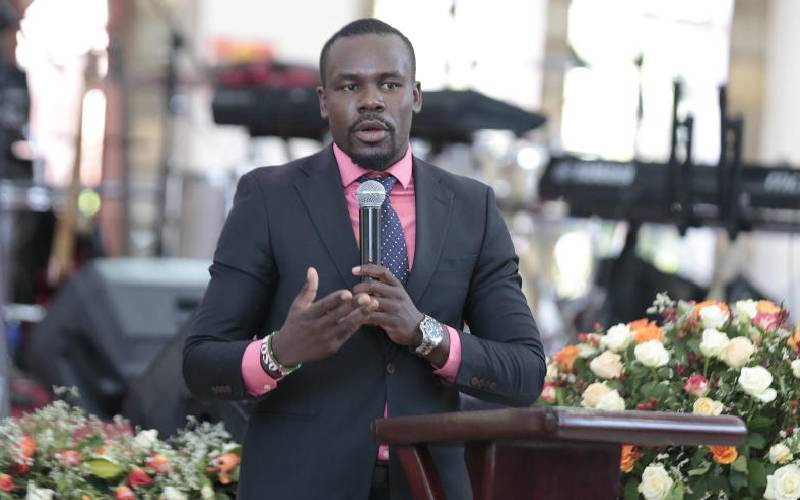Recently, Jubilee’s Uhuru Kenyatta bitterly attacked the press. In a moment of fury, Mr Kenyatta let a probing — and annoying — press get to him. He counterpunched. But his retort was more amusing than dangerous, or injurious to a free press.
He said words to the effect newspapers are only good for “wrapping meat.” Apparently, Mr Kenyatta regards the wrapping for meat as less than garbage. His point was that newspapers have become worthless — trash.
Methinks that while Mr Kenyatta had a point, his target was off. He really should’ve been railing at Kenya’s “gutter press.” By “gutter” I mean “trashy” tabloids — print and digital — not respectable “alternative press.” The mainstream and “alternative” media are an indispensable pivot of democracy.
Mr Kenyatta was irked — exercised — by frequent press reports of a widening rift between him and URP boss William Ruto, his numero dos. One can understand Mr Kenyatta’s distress. He’s trying to stand up Jubilee Alliance Party, a political fiction to senior Rift Valley politicians. The JAP detractors are led by Bomet Governor Isaac Ruto who’s been eating into DP Ruto’s Kalenjin real estate.
Mr Kenyatta’s attacks on the press in Bomet were in fact barbs directed at Governor Ruto and his band of Kalenjin JAP naysayers. It was clever for Mr Kenyatta to lay into Governor Ruto without naming him. The attack also revealed DP Ruto’s weakness — that Mr Kenyatta had to be his attack dog.
Mr Kenyatta was wrong to attack the press for sniffing a brewing crisis in Jubilee. That’s the raison d’etre of the press. Mr Kenyatta is a capitalist and a self-professed democrat. If so, why would he attack the mainstream press for doing its job?
Does it matter if the press spices the news with a little pepper to capitalise on market share? That’s what a market economy is all about so long as the press isn’t defamatory, or making unfair commentary. In fact, Mr Kenyatta should laud the press for probing stories. He says he wants to fight corruption. How will he succeed if the press — print and electronic — don’t look into every vault and sniff under every couch?
Mr Kenyatta should worry less about the mainstream press whose ownership is well known. The state should be concerned with the lawless jungle of social media and the gutter press. This is where vipers reside. Behind the anonymity of the keyboard and the byzantine world of the gutter press lurk malevolence. Vile beings with access to the Web can write or say anything confident that they are unlikely to be caught. They can sully reputations with salacious and defamatory stories fueled by an evil imagination. Many of them are simply dysfunctional psychopaths and misfits. Lonely and sad people. But many are in the pay of political muckrakers and kingpins. Their job is to make up sordid and false narratives.
The targets of these sinister enemies of democracy is the political opposition, or social critics they deem uncontrollable. Often, they attack human rights campaigners. They do so with crude slurs and utter falsehoods. For example, one tabloid recently purported to out Kenya’s “top gays.” I, Makau Mutua, was installed as Kenya’s “most prominent gay.” Other critics of the state made the list. At least one person on that list, the celebrated author Binyavanga Wainaina, is openly gay.
Putting people who aren’t gay on the list is a tactic meant to delegitimise them to a homophobic public. It’s a well-known dirty trick. It’s such hateful propaganda that Mr Kenyatta should’ve been attacking. The law should come down hard on them.
The gutter press and hateful digital sites get away with murder because they are either anonymous, or their owners exist under a veil. I believe that Kenya’s legislature should pass a law regulating offences on social media and within the gutter press.
Specific crimes and offences should be defined in law to catch up with technology. Punitive and compensatory damages should be awarded to victims of malevolent internet trolls whose reason for existence is damaging reputations for financial, political, or other sick gains. In some countries, including Kenya, the courts are dipping their toes in this complex arena.
That’s why a law would help in clarifying what’s not protected speech on the Web. It shouldn’t be a jungle out there.
Finally, I believe anonymity is the defamer’s biggest enabler. The ownership of all the gutter press and tabloid popular digital media — names of actual individual owners and directors of boards — should be published on a state-owned website. Sunlight cures many diseases.
Exposing the malignant authors and owners to public scrutiny would engender accountability without censoring free speech. The Web must remain open in a democracy but its abuse to kill democracy and damage individual reputations should be sanctioned — pitilessly.
Stay informed. Subscribe to our newsletter
 The Standard Group Plc is a
multi-media organization with investments in media platforms spanning newspaper
print operations, television, radio broadcasting, digital and online services. The
Standard Group is recognized as a leading multi-media house in Kenya with a key
influence in matters of national and international interest.
The Standard Group Plc is a
multi-media organization with investments in media platforms spanning newspaper
print operations, television, radio broadcasting, digital and online services. The
Standard Group is recognized as a leading multi-media house in Kenya with a key
influence in matters of national and international interest.
 The Standard Group Plc is a
multi-media organization with investments in media platforms spanning newspaper
print operations, television, radio broadcasting, digital and online services. The
Standard Group is recognized as a leading multi-media house in Kenya with a key
influence in matters of national and international interest.
The Standard Group Plc is a
multi-media organization with investments in media platforms spanning newspaper
print operations, television, radio broadcasting, digital and online services. The
Standard Group is recognized as a leading multi-media house in Kenya with a key
influence in matters of national and international interest.





